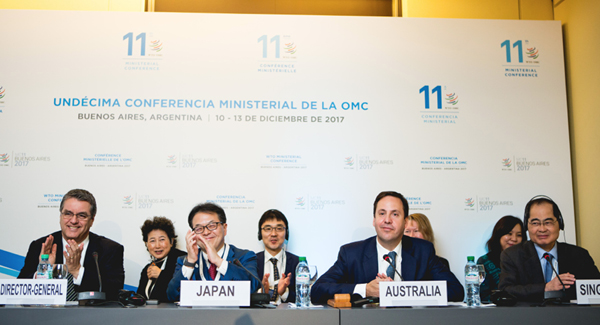WTO Conference Marked by Lack of Consensus on Pretty Much Everything
Tags: Logistics, Supply Chain

Nobody left satisfied when the World Trade Organization (WTO) wrapped up its 11th Ministerial Conference in Buenos Aires in December 2017. Here are the highlights:
- The United States largely withdrew from its traditional leadership role at the WTO conference, expressing interest in developing more direct, bilateral trade deals with trading partners.
- The European Union (EU) stepped into the former U.S. role as the largest leading participant in favor of multilateral trade agreements. Even the EU, with its 28 member countries, couldn’t wield enough power to force agreements between trade partners.
- Somewhere in the middle between bilateral and multilateral agreements lie plurilateral agreements, some of which may move forward in 2018—the most notable being a commitment to explore a plurilateral agreement on e-commerce. The United States and the European Union were among the 70 member countries supporting the establishment of global e-commerce agreements and best practices.
- The United States reneged on a promise to force consensus on global food stockholding rules, upsetting developing nations—especially India. India retaliated by blocking a ban on government subsidies for illegal fisheries and refusing to entertain any new issues before resolving old ones.
- For shippers and the supply chain, the lack of progress means that international trade will maintain the status quo for now. If bilateral and plurilateral trade agreements take precedence over multilateral agreements down the road, shippers and logistics providers will need to account for less universal, more varied rules based on agreements between origin and destination countries.
Ultimately, the conference amounted to individual members holding negotiations hostage in varied attempts to force agreements on their own measures. This doesn’t bode well for the future of the WTO, which relies entirely on its members reaching consensus to enact new agreements.
—By Jason McDowell
